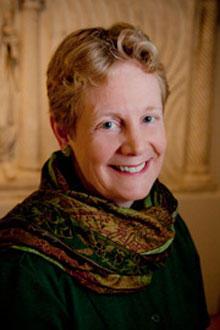Two faculty members in Emory University’s Department of History – Tonio Andrade and Judith Evans Grubbs – have earned highly competitive Guggenheim Fellowships for 2012.
The fellowships are awarded by the John Simon Guggenheim Memorial Foundation to scholars, artists and scientists for prior distinguished achievement and the promise of future accomplishment. The 181 successful candidates this year were chosen from a group of almost 3,000 applicants.
Tonio Andrade

Tonio Andrade is a specialist in global history and the history of China. His most recent book, "Lost Colony: The Untold Story of Europe’s First War with China" (Princeton UP, 2011), explores the European military revolution with data from East Asia.
As a Guggenheim Fellow, he will undertake research into the military history of Yuan and Ming China, during which time guns and gunpowder weapons revolutionized warfare before 1600. He will seek to understand how those weapons spread from China throughout the world, sparking dramatic changes in warfare and society wherever they took root, perhaps most significantly in Europe. Andrade argues that the global military revolution has important implications for how we understand world history and the rise of the West.
Andrade, in a separate award, also has received a Harry Frank Guggenheim Grant. The Harry Frank Guggenheim Foundation funds research that focuses on violence. Each year it awards about 12 research fellowships, in all fields, from medicine to history.
Judith Evans Grubbs

Judith Evans Grubbs is the Betty Gage Holland Professor of Roman History at Emory. Her research interests center on social history and law in the Roman Empire, particularly women, the family and slavery.
As a Guggenheim Fellow, she will be completing a book, "Children Without Fathers in Roman Law: Paternity, Patrimony and Freedom," which looks at the Roman legal attitude toward children who had no legal father and as a result were often in a marginalized, precarious position in the patriarchal Roman society. These include children whose fathers had died and who were under guardianship, but also illegitimate children, children who were abandoned at birth and children who were sold or pledged into slavery by their parents. Her research shows that the line between slavery and freedom in Roman society was often blurred, and fatherless children were particularly vulnerable to exploitation.
Guggenheim Fellowships are grants made for six to 12 months. No special conditions attach to them, and fellows may spend their grant funds in any manner they deem necessary to their work.
